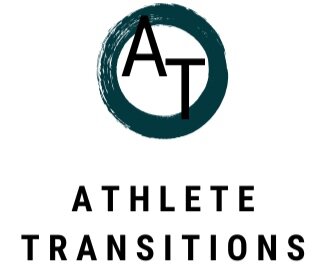
Mental Skills Development
Benefits of Mental Skills Development
The transition into life after sport is one that can be accompanied by a number of big and potentially overwhelming emotions. For those who have identified strongly with their athletic role, the transition can be accompanied by a period of grief and distress as we work through the loss of our identities (Cecić Erpič, Wylleman, & Zupančič, 2004; Giannone, Haney, Kealy, & Ogrodniczuk, 2017; Martin, Fogarty, & Albion, 2014). The transition can also bring up feelings of reduced self-esteem and self-worth if the transition has come due to reasons outside of our control, or if we have not had time to prepare for the transition (Lally, 2007). All of these feelings are normal and part of major transitions in life. However, we may not be equipped with the necessary skills to cope with these feelings, especially if we have not encountered them previously (Smith & McManus, 2009; Torregrosa, Ramis, Pallarés, Azócar, & Selva, 2015). There are a number of mental skills activities that an athlete can engage in to help prepare for and cope with the transition into post-sport life.
Gratitude
The act of expressing thankfulness for the people, things, and accomplishments in one’s life and the benefits they have reaped from them is known as practicing gratitude (Gabana, Steinfeldt, Wong, Chung, & Svetina, 2018). Gratitude can be practiced in a number of ways. It can be as simple as acknowledging feelings of thankfulness throughout the day, or as structured as keeping a daily gratitude journal.
Practicing gratitude has been shown to have a number of positive benefits on an individual’s well-being. Engaging in gratitude has been linked to an increase of positive emotions, better coping and problem-solving skills, increased life satisfaction, as well as decreased distress, depression, and anxiety (Chen, Wu, & Chang, 2016; Gabana et al., 2018). Gratitude has also been correlated with an individual’s ability to see and utilize available resources, while improving perceptions of social support (Gabana et al., 2018).
Self-Care
Self-care is the practice of actively and intentionally engaging in activities that promote overall wellness and support mental health. For athletes in transition, self-care can be an integral part of adapting to post-sport life (Stellefson, Wang, Apperson, Bopp, & Zhang, 2019). Self-care includes activities that promote physical, psychological, emotional, spiritual, and social well-being (Butler, 2019). It includes quality rest time and healthy relationships, as well as healthy eating and sleeping practices, and activities that aid in reducing stress (Heemstra, 2019).
Goal Setting
For athletes, goal setting is often a common practice. Setting and planning for athletic goals is likely a large part of what contributed to your success in sport. Goal setting is also applicable in life beyond sport and can be integral in providing a sense of control over the next part of life. Goal setting can help us gain confidence in our ability to adapt to post-sport life, provide clear direction of where we want to be going in our life, and demonstrate how we will get there (Martin et al., 2014).
Mindfulness
Mindfulness, or the act of bringing awareness to the present moment in a non-judgemental way, has been shown to improve psychological well-being. Mindfulness can be used in a number of ways to help in grounding and potentially minimizing stress and anxiety, while bringing awareness to what is driving feelings (Josefsson et al., 2017). Mindfulness is also linked with improving gratitude and overall life satisfaction (Chen et al., 2016).
References:
Butler, L. D. (2019, October 28). Developing your self-care plan. Retrieved from
http://socialwork.buffalo.edu/resources/self-care-starter-kit/developing-your-self-care-plan.html
Chen, L. H., Wu, C.-H., & Chang, J.-H. (2016). Gratitude and athletes’ life satisfaction: The moderating role of mindfulness. Journal of Happiness Studies, 18(4), 1147–1159. doi: 10.1007/s10902-016-9764-7
Erpič, S. C., Wylleman, P., & Zupančič, M. (2004). The effect of athletic and non-athletic factors on the sports career termination process. Psychology of Sport and Exercise,5(1), 45-59. doi:10.1016/s1469-0292(02)00046-8
Gabana, N. T., Steinfeldt, J., Wong, Y. J., Chung, Y. B., & Svetina, D. (2018). Attitude of gratitude: Exploring the implementation of a gratitude intervention with college
athletes. Journal of Applied Sport Psychology, 31(3), 273–284. doi: 10.1080/10413200.2018.1498956
Giannone, Z. A., Haney, C. J., Kealy, D., & Ogrodniczuk, J. S. (2017). Athletic identity and psychiatric symptoms following retirement from varsity sports. International Journal of Social Psychiatry, 63(7), 598–601. https://doi.org/10.1177/0020764017724184
Heemstra, J. M. (2019). Self‐care is not the enemy of performance. ChemBioChem, 20(17), 2203–2206. doi: 10.1002/cbic.201900285
Josefsson, T., Ivarsson, A., Lindwall, M., Gustafsson, H., Stenling, A., Böröy, J., … Falkevik, E. (2017). Mindfulness mechanisms in sports: Mediating effects of rumination and emotion regulation on sport-specific coping. Mindfulness, 8(5), 1354–1363. https://doi.org/10.1007/s12671-017-0711-4
Lally, P. (2007). Identity and athletic retirement: A prospective study. Psychology of Sport and Exercise,8(1), 85-99. doi:10.1016/j.psychsport.2006.03.003
Martin, L. A., Fogarty, G. J., & Albion, M. J. (2013). Changes in athletic identity and life satisfaction of elite athletes as a function of retirement status. Journal of Applied Sport Psychology,26(1), 96-110. doi:10.1080/10413200.2013.798371
Smith, J. L., & McManus, A. (2009). A Review on transitional implications for retiring elite athletes: What happens when the spotlight dims? The Open Sports Sciences Journal, 1(1), 45–49. https://doi.org/10.2174/1875399X00801010045
Stellefson, M., Wang, M. Q., Apperson, A., Bopp, T., & Zhang, L. (2019). Health promotion and chronic disease prevention after the game ends: The emerging role of certified health education specialists in wellness coaching for retired college student-athletes. American Journal of Health Education, 50(6), 339–343. doi: 10.1080/19325037.2019.1662347
Torregrosa, M., Ramis, Y., Pallarés, S., Azócar, F., & Selva, C. (2015). Olympic athletes back to retirement: A qualitative longitudinal study. Psychology of Sport and Exercise,21, 50-56. doi:10.1016/j.psychsport.2015.03.003









